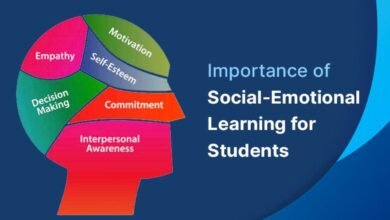The Importance of Lifelong Learning in the 21st Century

In today’s rapidly changing world, the concept of lifelong learning has gained significant importance. The 21st century has brought about a plethora of advancements in technology, communication, and globalization, leading to a dynamic environment where new skills and knowledge are continuously required. Unlike previous generations, where education was seen as a one-time affair completed in youth, the current era necessitates ongoing education throughout one’s life. Lifelong learning is not just about formal education; it encompasses informal and non-formal learning experiences that occur in everyday life, work, and social interactions. This article explores the significance of lifelong learning in the 21st century, the benefits it offers, and how individuals and societies can embrace this essential mindset.
The Evolving Nature of Work and the Need for Lifelong Learning
One of the primary drivers behind the growing emphasis on lifelong learning is the evolving nature of work. The 21st-century workplace is characterized by rapid technological advancements and digital transformation. Automation, artificial intelligence, and machine learning are reshaping industries and redefining job roles at an unprecedented pace. Many jobs that were in demand a decade ago have become obsolete, while new roles requiring different skills have emerged.
For example, the rise of digital marketing, data science, and cybersecurity reflects a shift toward a more digital and data-driven economy. Workers who were once secure in their positions now find themselves needing to acquire new skills to remain relevant. Lifelong learning allows individuals to continuously adapt to these changes, acquire new competencies, and enhance their employability. It is not merely about keeping up with technology but also about developing critical thinking, problem-solving, and emotional intelligence skills that machines cannot replicate.
Lifelong Learning as a Tool for Personal Growth
Beyond professional development, lifelong learning plays a crucial role in personal growth and fulfillment. It encourages individuals to explore new interests, discover passions, and cultivate hobbies that enrich their lives. Engaging in continuous learning fosters curiosity, keeps the mind active, and helps maintain cognitive abilities well into old age.
Lifelong learning also promotes resilience and adaptability, which are essential qualities in an ever-changing world. People who embrace lifelong learning are more likely to view challenges as opportunities for growth rather than insurmountable obstacles. This mindset can lead to greater satisfaction in life, as individuals feel empowered to shape their own futures and pursue paths that align with their evolving interests and values.
Moreover, lifelong learning enhances social inclusion and participation. It provides opportunities for individuals to engage with diverse groups, share knowledge, and contribute to their communities. This engagement fosters a sense of belonging and purpose, which is vital for mental and emotional well-being.
The Role of Technology in Facilitating Lifelong Learning
Technology has been a game-changer in making lifelong learning accessible to a broader audience. With the advent of the internet, online courses, webinars, and digital resources, learning is no longer confined to traditional classroom settings. Individuals can now access a wealth of information and educational content from anywhere in the world, at any time.
Massive Open Online Courses (MOOCs) offered by platforms like Coursera, edX, and Udacity provide affordable and flexible learning opportunities in various fields. Whether it’s learning a new language, coding, digital marketing, or understanding the fundamentals of neuroscience, there is a course available to suit virtually any interest or professional need.
Furthermore, social media and online communities have become valuable resources for informal learning. Platforms like LinkedIn, Reddit, and specialized forums allow individuals to share knowledge, seek advice, and network with professionals and enthusiasts worldwide. This interconnectedness has created a global classroom where learning is a continuous, shared experience.
Barriers to Lifelong Learning and How to Overcome Them
Despite the clear benefits, several barriers hinder individuals from engaging in lifelong learning. These barriers can be financial, such as the cost of courses and learning materials, or time-related, with busy work and family commitments leaving little room for education. Additionally, some individuals may face psychological barriers, such as a fear of failure or a fixed mindset that views learning as something reserved for the young.
To overcome these barriers, it’s crucial to foster a culture that values and supports lifelong learning. Employers can play a significant role by investing in employee development and providing access to training and education opportunities. Governments and educational institutions can also contribute by offering affordable and flexible learning programs tailored to the needs of adult learners.
On a personal level, individuals can adopt a growth mindset, recognizing that intelligence and abilities can be developed with effort and perseverance. Setting realistic learning goals, seeking support from peers and mentors, and leveraging free or low-cost resources can also make lifelong learning more attainable.
The Impact of Lifelong Learning on Society
The benefits of lifelong learning extend beyond individuals to society as a whole. A well-educated population is better equipped to navigate the complexities of the modern world, make informed decisions, and contribute to the democratic process. Lifelong learning fosters critical thinking, empathy, and a deeper understanding of global issues, which are essential for addressing the challenges of the 21st century, such as climate change, social inequality, and political polarization.
Moreover, lifelong learning can drive economic growth and innovation. Countries that invest in education and skills development are more likely to remain competitive in the global economy. Lifelong learning equips workers with the skills needed to adapt to technological advancements and evolving market demands, fostering a culture of innovation and entrepreneurship.
In healthcare, lifelong learning plays a pivotal role in improving outcomes and quality of care. Healthcare professionals must continually update their knowledge and skills to keep pace with medical advancements and provide the best possible care to patients. This ongoing education is crucial for addressing public health challenges and ensuring a high standard of care.
Lifelong Learning and the Future
Looking ahead, the importance of lifelong learning will only continue to grow. The pace of change is unlikely to slow down, and new challenges and opportunities will arise that we cannot yet foresee. As artificial intelligence and automation become more prevalent, the demand for skills such as creativity, critical thinking, emotional intelligence, and adaptability will increase. Lifelong learning will be essential in developing these skills and preparing individuals for the future.
Education systems will need to evolve to support lifelong learning, moving away from a model focused solely on young people and toward one that provides continuous learning opportunities throughout life. This shift will require collaboration between governments, educational institutions, employers, and individuals to create a flexible, inclusive, and accessible learning ecosystem.
In conclusion, lifelong learning is a crucial component of navigating the complexities of the 21st century. It enables individuals to remain adaptable in a rapidly changing job market, fosters personal growth and fulfillment, and contributes to a more informed, innovative, and resilient society. As we move forward, embracing a culture of lifelong learning will be essential for ensuring that individuals and communities thrive in an ever-evolving world.



